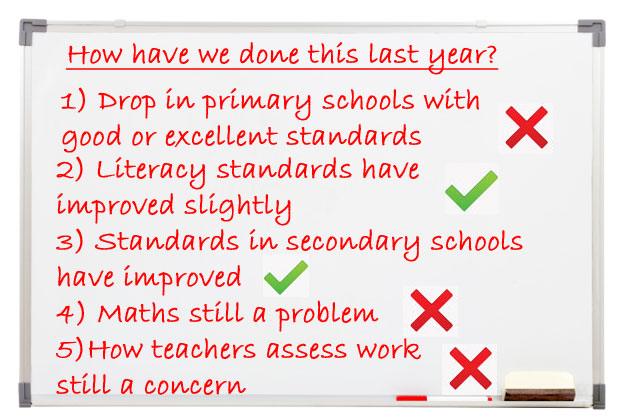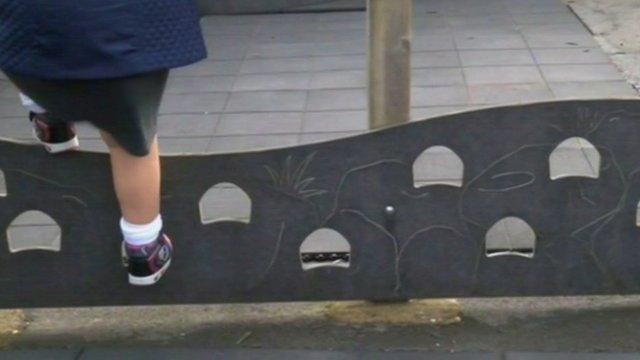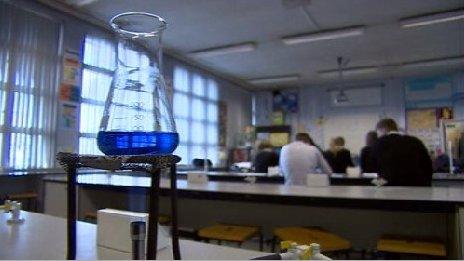Estyn report shows primary school standards decline
- Published

Numeracy skills are still a problem in schools
The standards of primary schools inspected in Wales declined in 2014 compared to previous years, according to education watchdog Estyn.
About two in three primary schools required some level of follow-up due to shortcomings.
But many aspects of school performance are improving, says its annual report.
Attendance rates are improving and the proportion of pupils who are persistently absent from school is declining.
The gap in performance between pupils eligible for free school meals and other pupils also narrowed slightly.
"These improvements indicate that the initiatives introduced in schools and other providers, supported by Welsh government, are having a positive impact," says Estyn's outgoing chief inspector Ann Keane.
In the previous annual report, inspectors found that primary school standards were improving but raised concerns about secondary schools.
This year, the situation is reversed.
While standards in secondary schools improved, those in the primary school sector declined.

Highlights from the Estyn annual report

The findings include:
The proportion of primary schools with good or excellent standards fell from seven in 10 to just over six in 10. Nearly four in 10 are adequate, a slight increase on last year
In many cases, this was due to weaknesses in pupils' numeracy skills and pupils' lack of confidence in using these skills in other subjects across the curriculum
Standards of literacy have improved slightly this year, particularly in pupils' writing skills
Standards in secondary schools improved this year compared with a relatively weak performance last year
The proportion of secondary schools with excellent or good standards rose to over half compared with well under half last year
No secondary school required special measures after a core inspection compared to six schools in the previous year

Maths continues to be a problem across both primary and secondary schools.
In about half of schools, pupils struggled to use basic number techniques fluently or to create and interpret graphs and charts.
Another perennial problem which is still a cause for concern is how teachers assess the work of their pupils.
When looking at pupils' books, inspectors often found a "mismatch" between the national curriculum levels awarded by staff and the quality of work.
"Where end-of-key-stage teacher assessment is not robust, this can mislead pupils and undermine the credibility of schools' self-evaluation," the report warns.
Failings in education departments at five local authorities had largely been addressed but concerns have been raised about four councils still in special measures, including one still in need of significant improvement.
Inspectors found that the Foundation Phase - with its emphasis on learning through structured play - was being run very well in many schools and nurseries.
However, there is a concern that young pupils were being prepared for testing in a more structured and "formal teaching style" at some schools, which goes against the ethos of the scheme.
Ms Keane, who stands down in the spring, said: "Over the last five years, the overall picture has been one of general improvement in provision for literacy and numeracy, although this is happening at a relatively modest pace."
- Published27 January 2015

- Published25 September 2014

- Published10 September 2014

- Published1 August 2014

- Published27 June 2014
